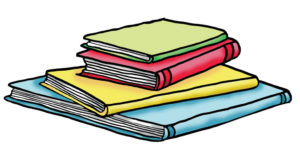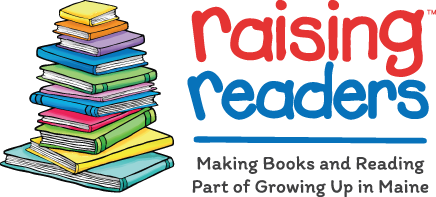Using Books to Build Knowledge
October 7, 2019 | Tips
Anything you read as an adult requires you to use what you know about the world to understand it. You might apply your knowledge of baseball rules to reading sports news. Or, you might use your own emotional experiences to understand those of characters in a novel. When you don’t have any knowledge about a text’s topic— like if you tried to read a complex medical text and you’re not in the medical field — understanding what you read is a lot harder.
Filling this mental filing cabinet of knowledge begins in childhood, and books are a key tool. When children hear books read aloud about animal habitats and life cycles, they’re adding to a  knowledge base they can use in a science class someday. When children hear a book about building a house, they become aware of how structures are imagined, planned, and constructed. They could apply this knowledge to building with blocks, building a model in school, and even a career in architecture or engineering!
knowledge base they can use in a science class someday. When children hear a book about building a house, they become aware of how structures are imagined, planned, and constructed. They could apply this knowledge to building with blocks, building a model in school, and even a career in architecture or engineering!
Knowledge gained from books doesn’t just prepare children for school and careers. When we read stories to children and discuss characters’ feelings and experiences, they learn about emotions, friendships, conflict resolution, and more. This is all knowledge they can apply to understanding other books in the future, and even more importantly, their own real-life relationships.
With all this knowledge to build, where do you start? Key advice for caregivers from Raising Readers early literacy advisor Susan Bennett-Armistead includes:
Move from the known to the new.
Especially for very young children, what’s familiar is most meaningful. It provides the foundation on which other learning can be layered. Watching birds in your neighborhood paves the way for learning about how animals survive in different habitats.
Follow the child.
When a child is curious about a topic, she’s more likely to soak up information about it from books. She’ll want to find more books on the topic, too. Nurture children’s interests by seeking out stories, informational books, and experiences that reflect them. Whether it’s a short-term toddler obsession with trains, or a long-term passion for sharks, interest drives learning.
Connect books to real life.
Connecting information from books to real-life experiences and conversations brings knowledge to life for children. Simple encounters like noticing how the rainy weather outside is similar to the weather in a story, or tasting food that a character ate, are motivating and memorable.
Show children why their knowledge matters.
Conversations about how book topics relate to the real world suggest to children how their knowledge can have an impact on their own lives and others’. After reading Pond Babies by Cathryn Falwell, statements like, “Maybe you’ll be a scientist who studies pond animals someday!” or “Maybe you could make signs reminding people to keep the turtle’s nest near our pond safe!” are powerful ones.
By reading a variety of books, responding to children’s interests, and making reading experiences part of a continuing cycle of related conversations and real-world experiences, caregivers can help children build a foundation of knowledge. This knowledge about animals, buildings, vehicles, friendship, weather, and so much more will allow children to read with understanding and pursue their passions throughout life.
What’s your favorite example of how books helped a child build knowledge about the world? Email us at info@raisingreaders.org, or post it to our Facebook page.
